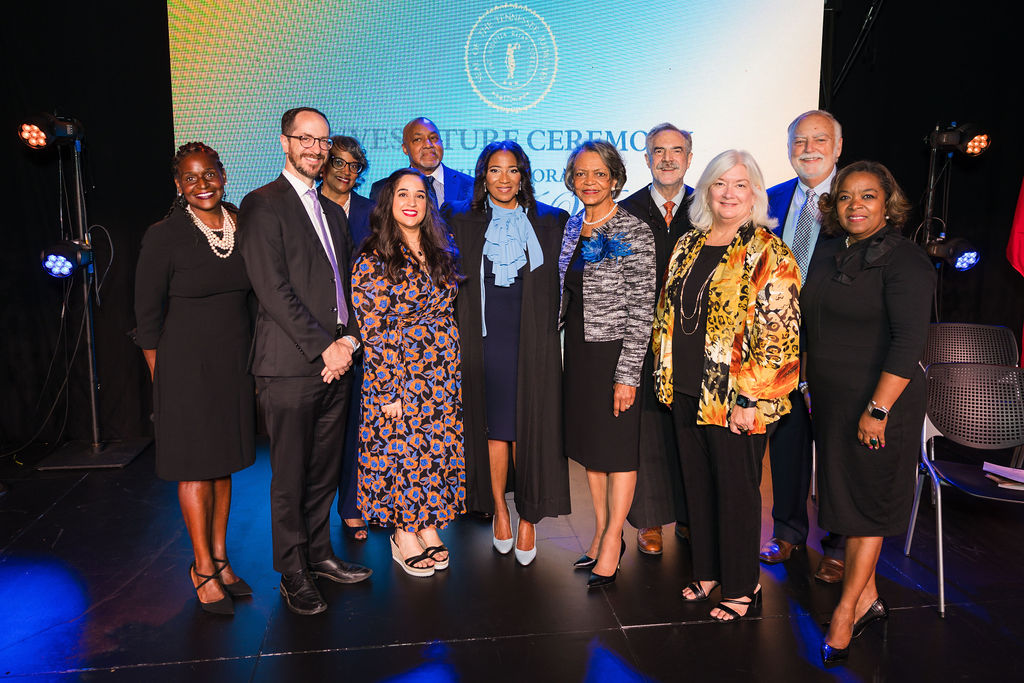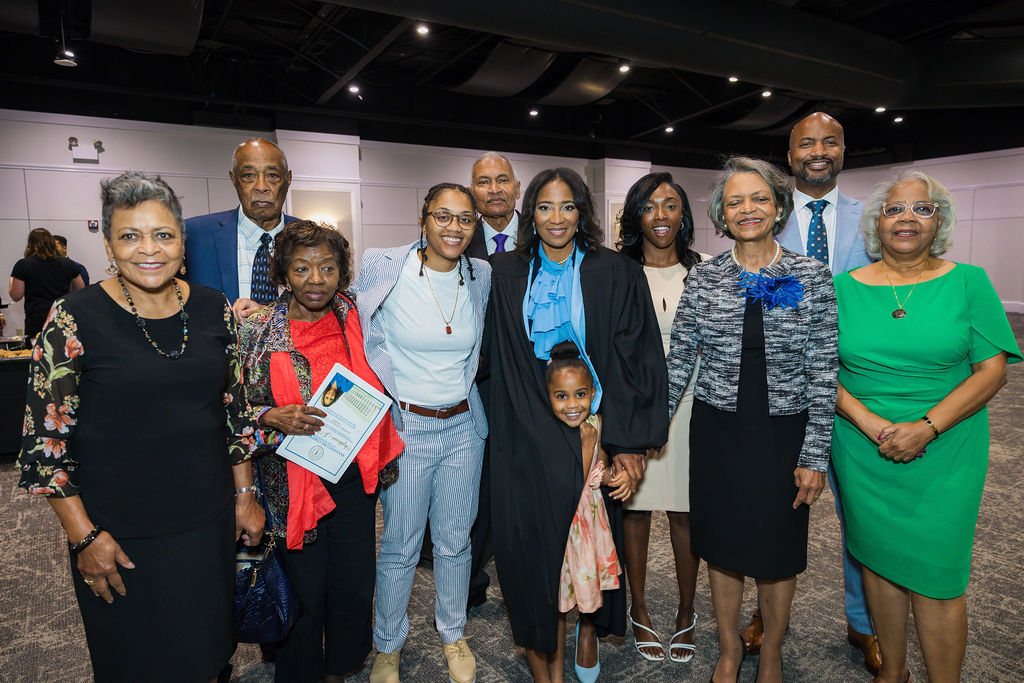Judge Stephanie J. Williams was elected on Aug. 1, 2024 to serve as Circuit Court Judge for the 20th Judicial District. She fills the vacancy created by the passing of Judge Philip E. Smith, in September 2022. Fittingly, Judge Smith served as Judge Williams’ longtime mentor and was instrumental in her decision to become a judge.
“I think at some point I realized I could do the work,” said Judge Williams. “Judge Philip Smith, I think, saw that in me and gave me the opportunity to work for him as his special master in 2014, which was a good training ground for that.”
As a special master, Judge Williams handled judicial settlement conferences which she described as informal mediations for the purpose of resolving cases before they go to trial.
“I think he was very intentional about the exposure and showing me things that would prepare me to do this,” said Judge Williams. “He was very vocal about the fact that he believed I could be his successor, and he wanted that for me, assuming I wanted that for myself. That really gave me the confidence that I could do it. The only part of that puzzle that didn’t materialize the way I envisioned it would have, and that I would have wanted it to, was that he’d be alongside of me on that journey. His unfortunate passing did not allow for that.”
However, a special memento belonging to Judge Smith was used in the investiture ceremony.
“A highlight of it was Pam Smith, who is the widow of Judge Phil Smith, was there and she brought Judge Smith’s Bible. She held his Bible with my mother as I took the oath.”
The investiture ceremony, which Judge Williams describes as inspirational and moving, featured a performance by Grammy Award winning artist, CeCe Winans. Special guests included Judge Angelita Blacksheer Dalton, Judge Stanley Kweller, Nashville Mayor Freddie O’Connell, and Dan Boone, president of Trevecca Nazarene University, where the ceremony was held. Judge Williams graduated from Trevecca as a non-traditional student in May 2000.
“I graduated from high school and went straight to undergrad after that at Fisk University,” said Judge Williams. “In my sophomore year, I had to step away because I had a family. I had children. One child at that time and 18 months later another child, so I was a single mother and education, particularly in the traditional sense, was no longer an option for me. But working multiple jobs was. That’s what I did and one of my jobs I was working for attorney Richard Manson on his entertainment side of things. He had an entertainment law practice. And he just kind of said one day, ‘you should go to law school.’ I was kind of like that’s cute and all, but you don’t just wake up and go to law school, you’ve got to get there. He said, ‘Well, you can figure it out.”
And she did. Part of figuring it out meant finishing her bachelor’s degree.
“Trevecca, which is why they are so meaningful to me, had a program which was catered toward working adults,” said Judge Williams. “They had it set up in a way where I could take one class at a time, go to school at night one night a week, and test out of some subjects to complete my undergrad. They made it very, I don’t want to say easy, they made it very doable for someone in my situation.”
After graduating from Trevecca, Judge Williams applied and was accepted at the University of Tennessee College of Law, at Knoxville. With the help of family to care for her children, she commuted from Nashville to Knoxville for two and a half years, earning her law degree in 2002.
It all came to fruition when Judge Williams heard her first court cases on September 9, 2024.
“I heard adoption cases,” she said. “Those are fun days. It’s nice to see people coming in here excited about expanding their families. And children, their relationships being solidified in a legal way with people that are wanting to love and take care of them and have a capacity to do it in a way that serves in their best interests. That’s a really good time.”
Judge Williams spent the previous week working with court staff to establish themselves as a team, talk through ideas for change and discuss how each team member will play a role in those changes.
“It might be too early to say, but I’m just eager to give our family courts a different feel and to, I think from a big picture perspective, to really be more relational versus transactional in how we interact with people,” she said. “For it not to feel scary, for it not to feel cold, for it not to feel like people are coming in here being beat up on a date, in a season where they’re already struggling with things in their personal lives.”
Judge Williams wants everyone who enters her courtroom to understand that she has a job to do, and there are rules and laws that must be followed. However, the process can be completed in a way that shows some light at the end of the tunnel.
“That they don’t walk out of here, at least for anything we have done, worse than when they walked in,” said Judge Williams. “We certainly wish that they have a little more hope and that they are in a better position to have more stability for themselves, and their families and they are able to have more long-lasting and greater impacts on the outcomes that they receive from our court.”


